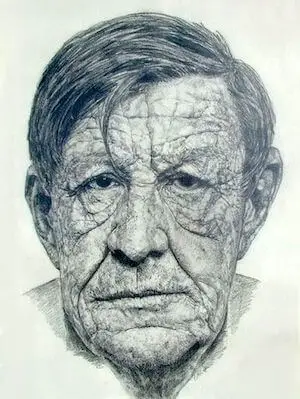A ‘crinkum-crankum’ thing is something full of twists and turns; something intricately or fancifully constructed, winding intricately and sinuously.
The convoluted drawings of M. C. Escher could be described as ‘crinkum-crankum’.
A ‘crinkum-crankum’ thing is something full of twists and turns; something intricately or fancifully constructed, winding intricately and sinuously.
The convoluted drawings of M. C. Escher could be described as ‘crinkum-crankum’.
The reduplicated expression crinkum-crankum is rarely used now but it the 17th century it was common in writings and in the street.
Actually, there are a group of similar-sounding expression that lead to ‘crinkum-crankum’. I’ll go through them in order:
The root word behind all these expression is crink. That referred to an intricate twist of thought or speech or a clever deception or sleight of hand. That dates from the early 16th century, as in this piece from the Tudor courtier Leonard Smyth’s Letters, 1534:
He seith they ar better to marr a good & trew matter then to make it wth suche crinkes in the law.
The typical way that a reduplicated two-word pair is formed is by this recipe:
Take an existing word with a known meaning, or a variant of it.
Either, add a rhyming or alliterative word, or repeat the first word.
So, the word crink, meaning ‘twisting/tricky’, leads us to the two reduplicants ‘cringle-crangle’ and ‘crinkle-crankle’, which both emerged around the same time and are effectively the same term.
Found in the British publisher Humfrey Toy’s The Supremacie of Christian Princes, 1573:
This argument is intricate, and full of many inversed cringle crangles, to shewe a face of deepe and subtill knowledge, beyonde the simple mans capacitie: whyche kynd of reasonyng, is more suspicious than to edifying.
This is found in the eminent linguist and translator John Florio’s Italian/English dictionary A Worlde of Wordes, 1598, in which he defined the Italian word séno:
Séno, … the turning or hollownes of a water-banke … or fold in a garment … a twinding or round circle in haire … a crinkle crankle of any thing.
We eventually get to ‘crickum-crankum’. This is clearly derived as an alternative or mispronounced version of the above – spelling was a very fluid affair in 17th century England.
It’s found in a 1656 comic play – The Hectors. The authorship of the play is disputed but the OED attributes it to the writer Edmund Prestwich. ‘Crinkum-crankum’ is used in a scene where the protagonists exchange insults with each other..
If thy face be a Green Cheese, the Cheese-cloth was somewhat course. … I, for it is all wrought crinckum, cranckum.
‘Crinkum-crankum’ is still used occasionally, as is ‘crickle-crankle’. The expressions may now be rare but they lead to the more commonly used ‘knick-knack’ and ‘gimcrack’, so the DNA of ‘crink’ lives on.
Trend of crinkum – crankum in printed material over time

A B C D E F G H I J K L M N O P Q R S T UV W XYZ
American Animals Australian Bible Body Colour Conflict Death Devil Dogs Emotions Euphemism Family Fashion Food French Horses ‘Jack’ Luck Money Military Music Names Nature Nautical Numbers Politics Religion Shakespeare Stupidity Entertainment Weather Women Work
Have you spotted something that needs updated on this page? We review all feedback we receive to ensure that we provide the most accurate and up to date information on phrases.